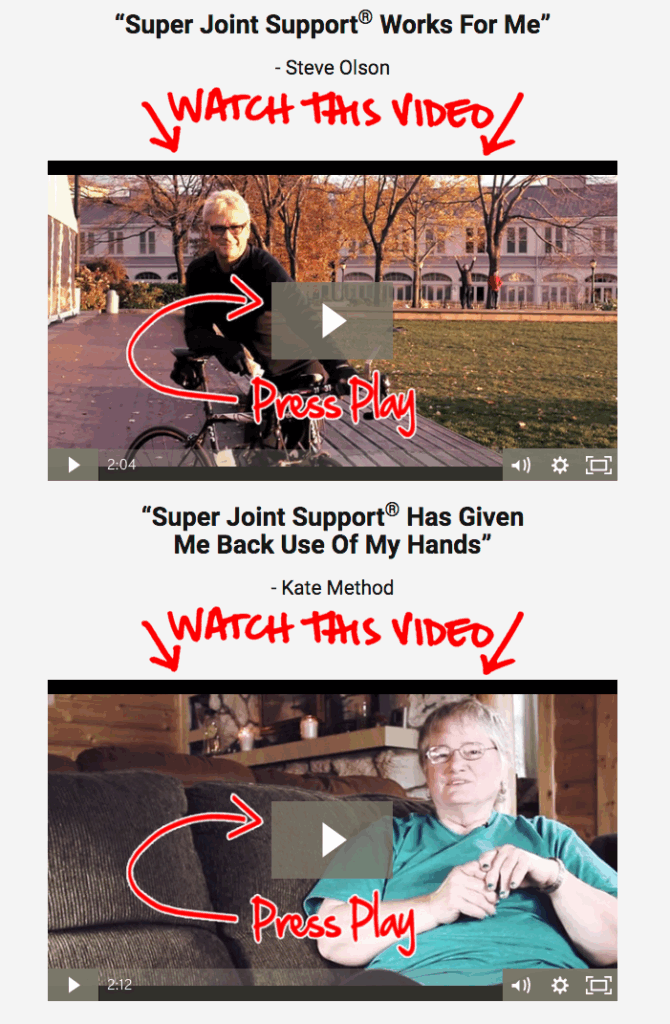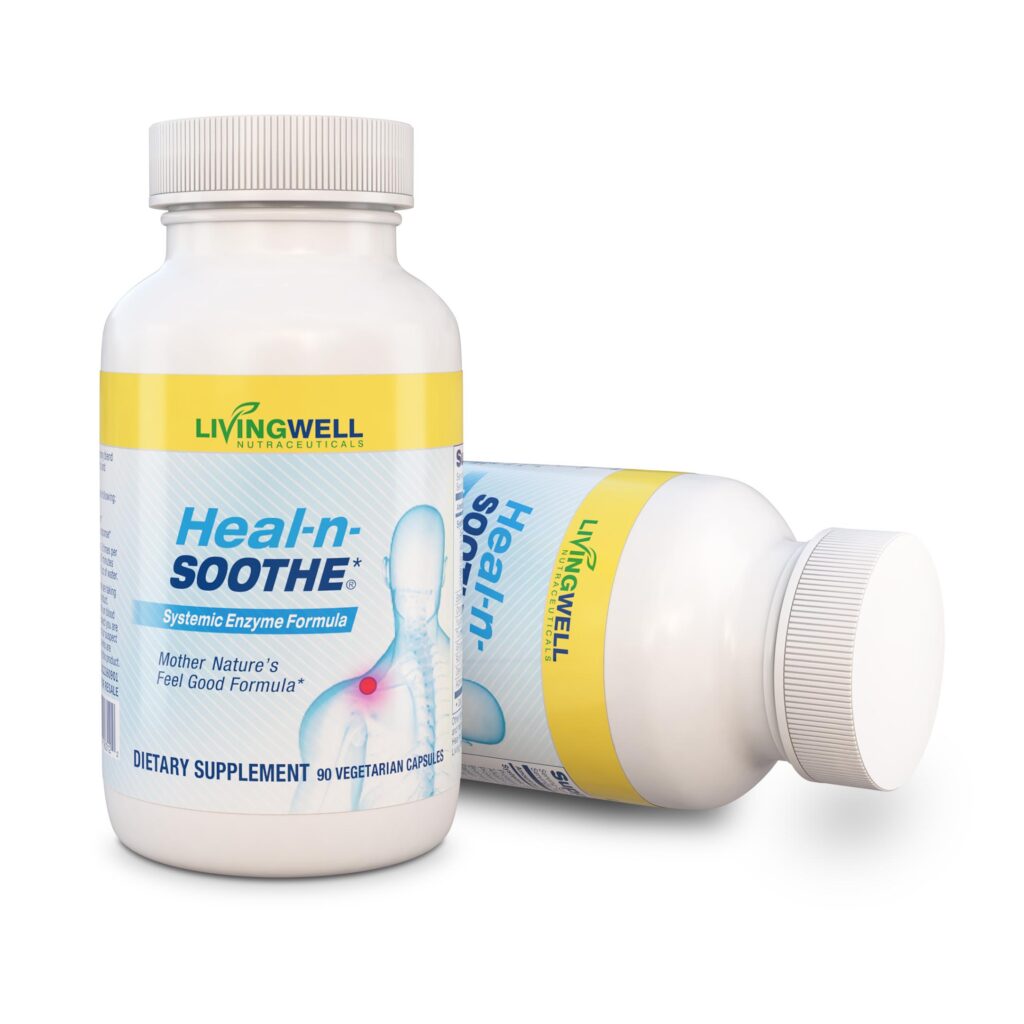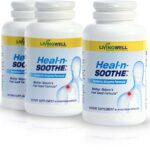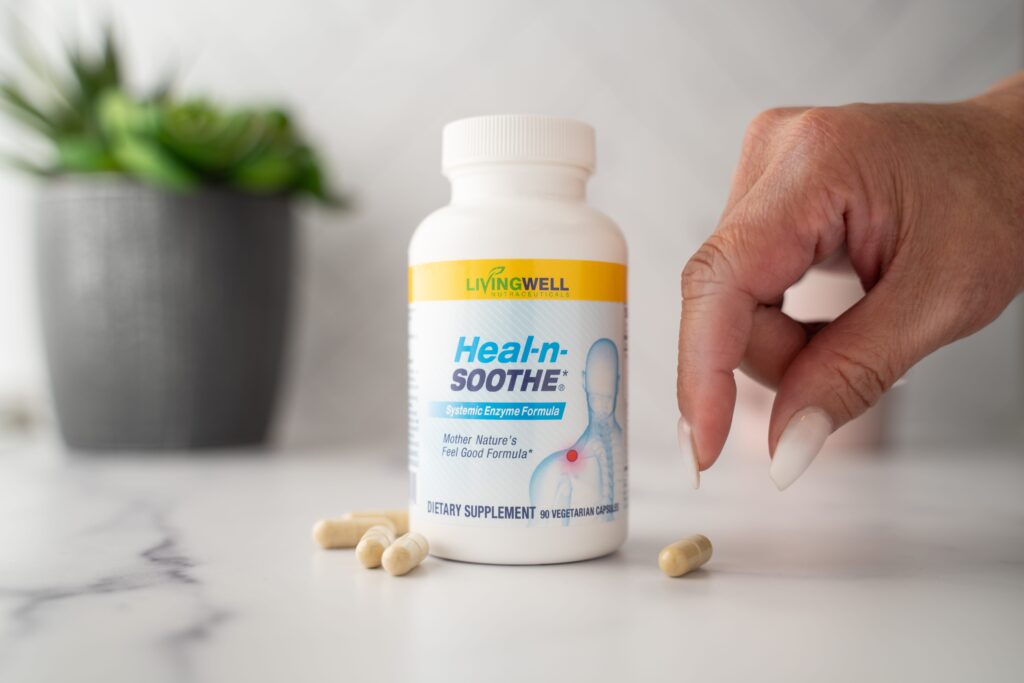Nighttime pain is a cause of distress for millions of people. It seems that in the evenings when people are worn out from their long day and the body is shutting down its defenses, pain seems to jump front and center. And without the ability to ease the pain, inflammation, tightness and stress… getting a deep, sound sleep is next to impossible.
Without deep sleep the body cannot properly heal and recharge itself and the next days will be worse. Here are some easy tips and a little education about how you can ease your nighttime pain.
Watch Your Diet
The food we eat is a critical piece of the puzzle when it comes to controlling inflammation and indigestion, which themselves cause pain. The typical American diet consists of too much fat, tons of sugar, loads of red meat, and a frightening amount of processed foods–all of which are likely to increase inflammation and indigestion. By switching to an anti-inflammatory diet plan consisting of healthy whole foods, you can actually decrease inflammation and ease the pain and discomfort associated with it.
Eating plenty of whole grain and complex carbohydrates, as well as consuming ample fresh water, will help your stools move, decrease constipation and limit indigestion. Adding more of the aromatic spices to dishes (like ginger, garlic, onion, turmeric, curry) also aid the body in naturally fighting inflammation, pain and help expel toxins. In addition, avoiding the nightshades (tomato, potato, eggplant) will help as these have been shown to increase inflammation, which increases discomfort and pain.
Have a Good Laugh
The notion that laughter is good for the body has been around for thousands of years, even as far back as the Old Testament. Proverbs 17:22 says, “A cheerful heart is good medicine, but a crushed spirit dries up the bones.” Seventeenth century English physician Dr. Thomas Sydenham remarked, “The arrival of a good clown exercises more beneficial influence upon the health of a town than of twenty asses laden with drugs.” Or as the master Groucho Marx put it, “A clown is like aspirin, only he works twice as fast.”
A study published in the Journal of Holistic Nursing reported that patients who were told one-liners after surgery and before painful medication was administered perceived less pain when compared to patients who didn’t get a dose of humor as part of their therapy.
Another study, this one published in the Journal of Applied Behavioral Analysis, found that young girls with burns who were shown cartoons during very painful hydrotherapy said they felt less pain than similar patients who were not exposed to cartoons during the same procedure.
Aside from distracting us from pain, laughter triggers the release of endorphins–chemicals in the brain that can make us feel good. So make it a point each day, and especially each evening to laugh. Read something funny, watch something funny, think of something funny or talk to a funny person. Not only will this distract from pain, and reduce nighttime pain, but it will also help relieve stress and help get you a new focus on your life.
Reframe Your Mind
Reframing the way you think of your pain is easy and it shows you that your outlook on life has a lot to do with the life you lead. Pain is simply a form of communicating information within your body. You may say to yourself, “My back hurts, I have weak knees, they stop me from doing things and this gets me down.” What you are doing is letting yourself know you have all of these problems. By focusing on the problems, you are actually reaffirming a negative cycle. Reframing helps break that cycle to bring on relief.
Step One is identifying the problem.
Why is it happening (e.g., you have a disc problem; you slept in a new bed)? When is it happening (e.g., while doing something that always sets it off)? What is happening (e.g., what kind of pain is it?) And how is it happening (e.g., is it fear-based pain where you are worried that it will get bad so you get in the mindset of being in pain?)
Step Two is separating the intention from the learned behavior.
In other words, you slow down to really talk to your subconscious mind about a better way to deal with the problem at hand. You might say, “Okay, I know I am having pain, but it’s not an injury, I am not my pain, it just happened today because I have been sitting all day and not moving.” Thinking and acknowledging in this way keeps you focused on getting to step three.
Step Three is setting the positive way forward.
You can even thank your body for the message of pain, as it focused you to work with a better intention of achieving your health and long-term life goals.
You can reframe in many ways, just look at the positive view of the situation and let your mind work for you!
Take Systemic Enzymes
Most physical pain is caused by inflammation. Enzymes are the main line of defense against inflammation by neutralizing the bio-chemicals of inflammation to levels where the creation, repair and regeneration of injured tissues can take place. Reducing inflammation can have immediate impact on improved heart health, cancer prevention and recovery and Alzheimer’s prevention. It also helps speed up recovery from sprains, strains, fractures, bruises, contusions, surgery–and arthritis. And any of these areas certainly cause nighttime pain and poor sleep.
Enzymes also break down scar tissue and fibrosis. They cleanse the blood of excess fibrin that causes the blood to thicken, which sets you up for clots, which can cause heart attack or stroke. Enzymes also help take some of the strain off of the liver by keeping the blood clean and not allowing it to thicken beyond normal. Enzymes are adaptogenic and they work to restore the body’s balance. When the immune system is low and we become more susceptible to infections, the enzymes clean the blood to help fight off infection. And if the immune system is too ramped up, as with autoimmune diseases, the enzymes work to tone down the immune system and eat the antibodies that are attacking the healthy tissue.
Systemic enzymes truly are one of nature’s most powerful natural remedies. After years of research and testing, the only systemic enzyme formulation that I have found to deliver consistent and excellent results is called Heal-n-Soothe. This formula includes what I believe is the best combination of enzymes and herbs that have been proven to fight off inflammation and reduce pain. In fact, Heal-n-Soothe is the most powerful proteolytic enzyme formulation that’s ever been created and is now available to you today.
Get Deep, Restorative Sleep
While it is a catch-22, deep sleep is necessary to relieve pain. Yes, nighttime pain will keep you awake, but finding ways to reduce it and over time getting that sleep will do wonders in the long run. During sleep, the body works to repair itself. The liver purifies blood, the muscles repair, and serotonin increases. Without ample sleep, these things do not happen at optimal levels.
In our natural circadian rhythm, or biological clock, sleep is set to take over during the evening hours. We are genetically programmed to get up and lie down with the sun. So it was the invention of artificial sources of light (candles and bulbs) that began our stressed-out drive for more working hours at the expense of much-needed rest.
What’s the big deal, you ask, if you sleep only a few hours per night? You can always drink coffee, take NoDoze caffeine pills, cat naps… life is good. Well, not really. Did you know that in clinical tests rats die within a few short weeks of sleep deprivation? And it’s not just rats at risk.
Chronic fatigue, adrenal fatigue, attention deficit disorder, chronic migraine and headache, body aches and pain, mental illness, depression and anxiety are all in part caused–or made worse–by lack of sleep. And no caffeine pill or taurine-laced energy drink can cure these dangerous side effects of our global-economy-size workloads.
Here are seven ways to help you fall asleep and repair.
1. Do not consume ANY sugar or caffeine after 6:00pm.
2. Stop working at least two hours before bedtime.
3. Turn off the computer and television at least one hour before bedtime.
4. Make sure your sleeping quarters are as dark and silent as possible. Studies have shown that those in darker and quieter spaces tend to sleep through the night more deeply than other
5. Establish a sleep/wake schedule, and stick to it.
6. Make a set routine out of bedtime. Change into pajamas, brush your teeth, set out clothes for the morning, even jot down any last thoughts but promise yourself to revisit them tomorrow, then turn off the light… breathe deeply, relax, sleep tight.
7. If a racing mind is nagging, slow your breath and focus on the sensation of air as it passes through your nose. This will derail those busy thoughts to help you drift off.
Hope you enjoyed this article, please leave a comment if you any feedback or any tips of your own that you would like to share.










My sleep problem at night is very simple but I do not have a solution:
As soon as I am in bed, I keep on thinking about family, work, etc. etc. and for that reason, even though I am in bed, my brain / mind does not rest, and therefore I have a hard time falling into a deep sleep. Also, the slightest sound wakes me up in the middle of the night, and then I have a very hard time going back to sleep due to the same “thought racing” reason.
Your busy brain may need physical exercise or spiritual exercise for relaxation.
For sounds waking you up, I went to an audiologist and had a pair of custom ear plugs made. It cost about $80, but they shut out the small noises that wake me up. I have been sleeping much better for the 3 years I use them.
(The reason for full custom ear plugs is that they fit perfectly and sit flush to your ear so lying on your side doesn’t put pressure on the ear canal.)